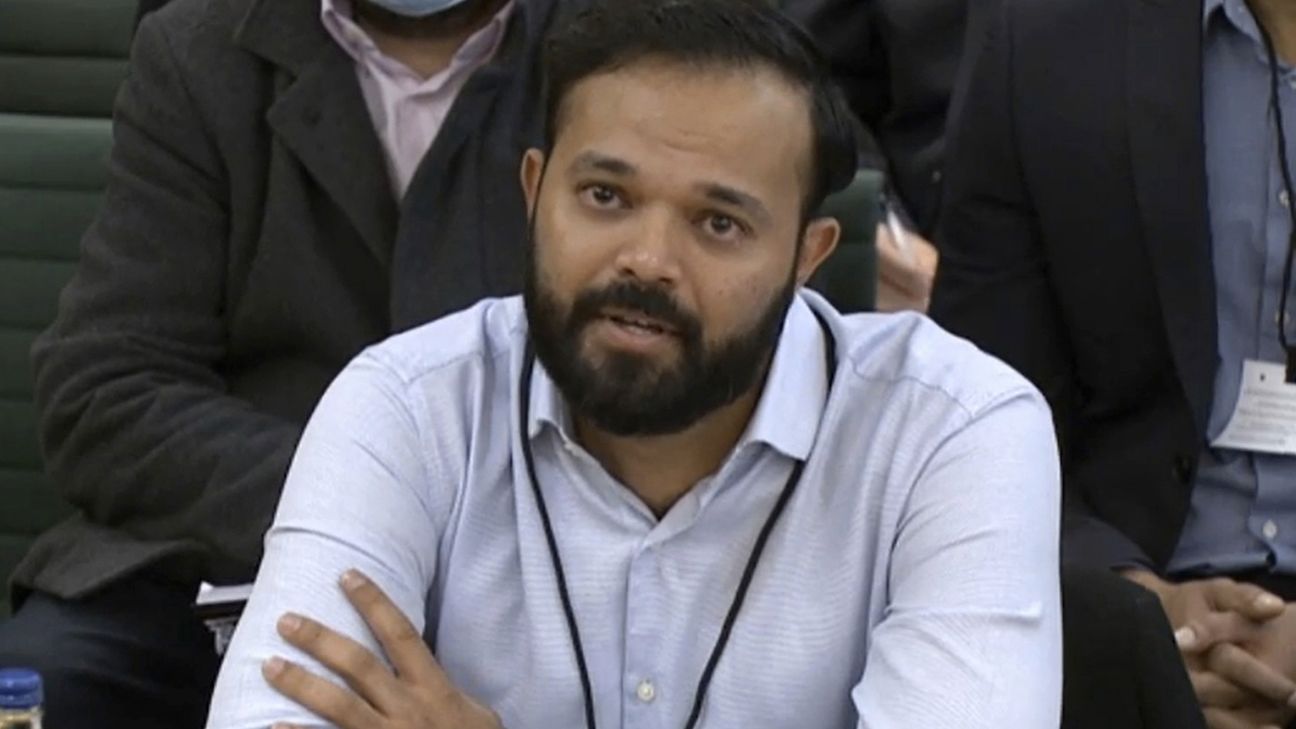During two days of DCMS hearings in November and December, testimony was heard from various parties involved with Yorkshire and English cricket, including Tom Harrison, the ECB chief executive, and Roger Hutton, who resigned as Yorkshire’s chairman at the height of the controversy, with Lord Kamlesh Patel appointed as his replacement.
“All I wanted to do was play cricket and play cricket for England and live my dream and live my family’s dream,” Rafiq told the hearing. “Do I believe I lost my career to racism? Yes I do.”
In a summary of its findings, the DCMS committee urged the UK government to limit public funding for the game unless there is “demonstrable progress on ridding racist behaviour from clubs and among spectators”. It also called on the ECB to develop a set of “key indicators” to measure their progress in combatting institutional racism, and to report back to the committee every quarter.
“It is evident to us that there is a deep-seated issue of racism in cricket,” the report stated. “More pertinent, it is evident to Yorkshire Country Cricket Club and the England and Wales Cricket Board that there is an issue of racism in cricket.”
“We, like the minister, are watching closely and fully intend to ensure that cricket cleans up its act,” the report stated. “We recommend that the government ensures that any future public funds for cricket are dependent on continuous, demonstrable progress in getting rid of racism in both the dressing rooms and on the stands.”
However, according to the DCMS report, ECB and Yorkshire officials will be called before the committee again “early in 2022” to update on the sport’s progress.
“The powerful evidence given to this committee by Azeem Rafiq convinced us that his story was typical of an endemic problem across the whole of cricket,” Julian Knight, the DCMS chair, said. “We commend him for having the courage to blow the whistle on unacceptable and discriminatory behaviour.
“We have been shocked by language people used in correspondence with us after the hearing. That, together with stories run in the media to discredit him, demonstrate that eradicating racism from the game will be a long and difficult road. However, this is a watershed for cricket in this country. Those who love and support the game are part of the solution and must play their part.
“Changes introduced by Lord Patel at Yorkshire County Cricket Club give room for optimism, but alone cannot eradicate racism in the game. Public funding for cricket must depend on real leadership and progress by the ECB to tackle abhorrent behaviour, not just in the dressing rooms, but also in the stands.
“The government must make future funding conditional on the game cleaning up its act. We put the ECB on notice that we expect regular updates delivered to this committee on progress being made.”
Responding on behalf of the ECB, Barry O’Brien, Interim chair, said: “We welcome the committee’s recommendations and the focus of Julian Knight and committee members on achieving real change.
“We also embrace the ongoing scrutiny of the committee and all those that love the game of cricket who will be watching closely as we undertake the continuous, demonstrable, progress in eradicating racism from the dressing room and from the stands. We are determined to root out racism – and other forms of discrimination – from our sport.
“We look forward to updating the committee on the progress the whole game is making in delivering the 12-point Action Plan agreed in November to bring about the meaningful change we all want to see. We agree that sharing regular, public updates on our progress is important to rebuilding trust in our sport.
“We had already taken important steps to make cricket more inclusive in recent years – including our 2018 South Asian Action Plan, our 2019 Inspiring Generations strategy to make cricket a game for everyone, and launching the Independent Commission for Equity in Cricket in early 2021 – however, we recognise that more needs to be done.
“We are deeply sorry for the pain people have suffered and recognise the courage it has taken to speak out. By working with the game to deliver the Action Plan, and continuing to listen and learn from people’s experiences, we are determined to make cricket a stronger, more welcoming sport.”
